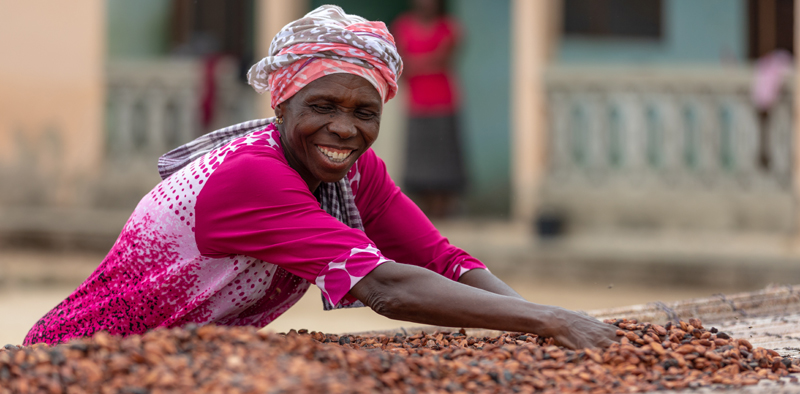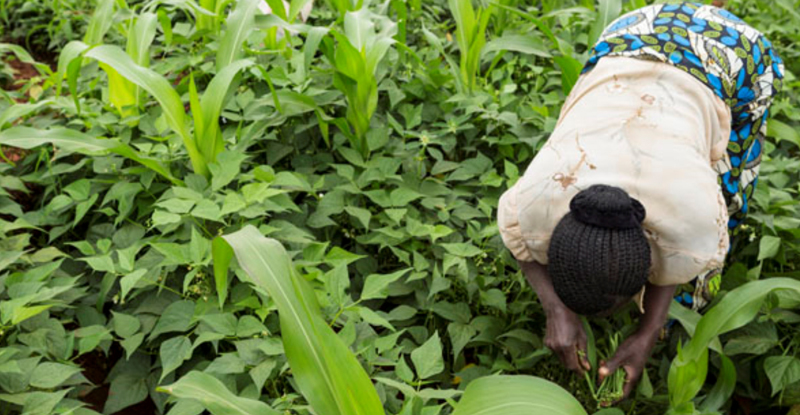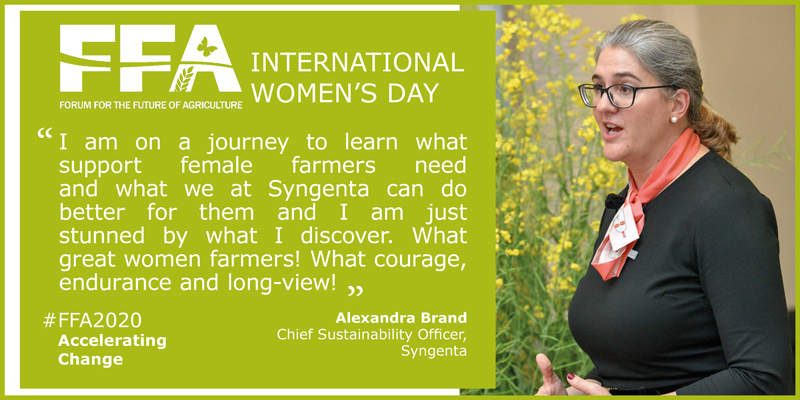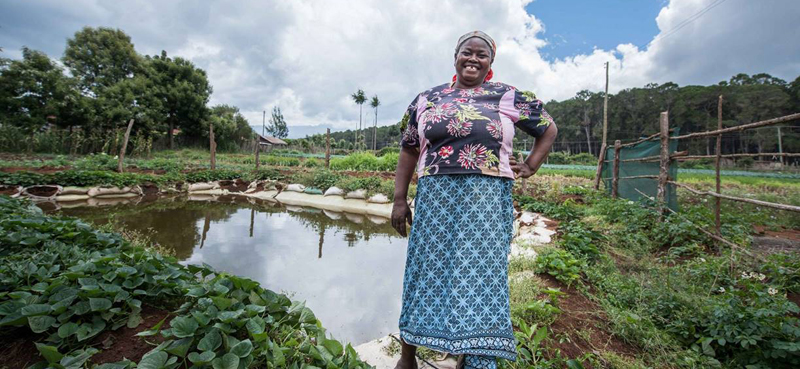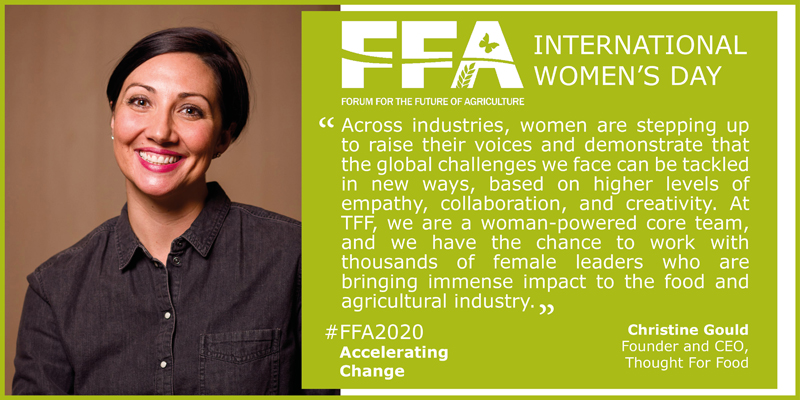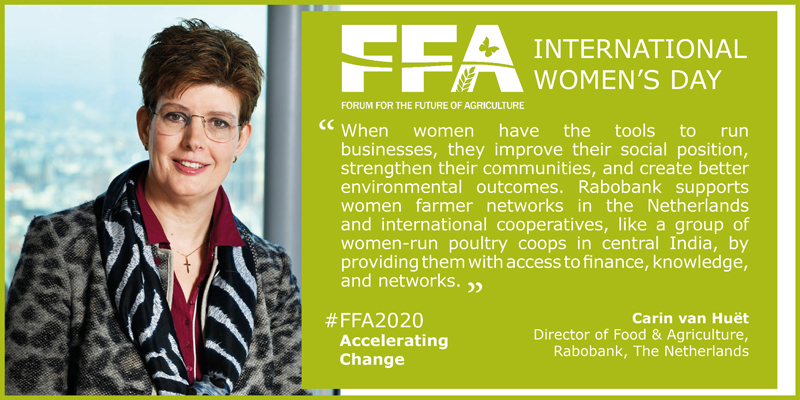Women for the Future of Agriculture
Wednesday, Mar 04, 2020
When agriculture is brought up in conversations, it seldom conjures a host of feminine images. Yet the role of women in agriculture is a critical one and has long been on the European agenda. Already in 1988,
Equal Opportunities International was pledging for farming to become an occupation where both men and women are recognized as equals, and where the input of women is fully recognized, especially on family farms. In 1986, the EU Council of Ministers adopted a directive meant to provide equal treatment and social protection for women by creating incorporated partnerships between husbands and wives in agriculture.
35 years later has this made a difference? Can we say that we have done enough for women in Agriculture? Undeniably, there has been some improvement. A lot of stakeholders are also increasingly aware of the necessity to do more, and are working on improving gender balance. But what is the current reality, what still needs to be done, and why is it so important?
Europe’s farming sector is still dominated by older men
On average, around 30% of farms across the EU are now managed by a woman. However encouraging, looking at young female farmers situation is not necessarily reassuring. Current data shows that just 4.9% of farmers are women under the age of 35. Given that almost 40% of women working in agriculture are over 65 (compared to 27.6% of men), there is the potential for the gender gap in farming to widen in future years (Eurostat, 2016), despite the current upward trend.
Former European Commissioner for Agriculture, Phil Hogan, strongly encouraged Member States to do more and make use of the flexibility offered by the CAP to tackle the issue of rural women: “For the 2014-2020 period, member states have full freedom to include programmes targeting women in rural areas under rural development funding. However, this option has not been taken up by member states,” Hogan noted.
Positive impact of women in agriculture
On the global stage, women’s contribution in agriculture is critical, even if they still face specific challenges. Eliminating the gender gap in access to agricultural resources would raise yields on women’s farms by 20-30 per cent and increase agricultural production in developing countries by 2.5-4 per cent, which could in turn reduce the number of undernourished people by 12-17 percent or 100-150 million people. (FAO, July 2011)
Women still face barriers
The existence of specific challenges for women trying to progress towards land ownership or even subsistence in the faming sector is still a reality in many countries.
As part of the 2019 Women in Food & Agriculture Summit, an industry survey was conducted. It identified some key factors holding women’s potential back in the farming sector, namely inequal pay, the lack of strong networks and mentors.
According to a Corteva study (2018), “gender discrimination is perceived as widespread, with some variation among countries, but significant levels everywhere, ranging from 78 percent in India to 52 percent in the United States. It includes both active discrimination and such structural inequalities as differing educational opportunities and the need to balance their agricultural work with their role as family caregivers. ”
“Agriculture is important to women, but female farmers have less access to the productive resources and services, such as land, livestock, human capital, extension services, financial services and new technology, required by agricultural producers.” (FAO, July 2011)
Because of that, even in the EU, women, manage farms 40% smaller than men’s and their income is on average 16% lower than men’s.
(Euractiv).
What can women celebrate this March 8, 2020?
Most of the studies show that the sector is making steady progress in closing the gender gap, and employees are feeling positive about the future on that particular issue. 79% agree that their organization is becoming more inclusive. (WFA Survey, 2019) and 62% believe discrimination has been reduced over the last 10 years. (Corteva, July 2018). Projects and solutions exist, have a look at FFA’s partners projects enhancing women in agriculture.
Today we celebrate the multiple opportunities opening up to women, let’s seize them!
Projects that reinforce Women’s position in Food and Agriculture
European Landowners’ Organization:
Empowering women to take the stage in agriculture
ELO empower women to take the stage through REWARD, a project addressing the problem of rural women employability through entrepreneurial activities promoting rural development. This EU-funded Erasmus+ project supports women in managing the wide range of multifunctional activities that are related to agriculture and rural cultural heritage and provides the necessary tools and training materials to meet the needs.
More information here >
Syngenta:
Helping women farmers access much needed support
There are more than 80 million women farmers across Africa, mostly on small farms on a hectare of land or less, often in challenging conditions. Generally, women farmers have a harder time accessing credit, fertilizer and quality seeds than their male peers. As a result, their productivity is often much lower than that of farms run by men. To close the productivity gender gap, Syngenta trains and works with farmers across Kenya, and supports the ‘Mavuno Zaidi’ (Grow More) program. Growers are trained on best practices for growing potatoes and tomatoes and access to credit allows them to invest in quality crop inputs to increase their farm productivity.
Further details here >
The Nature Conservancy:
Working with farmers in the steepest and most critical areas
There are 300,000 very small farms on the steep slopes in the Upper Tana watershed. Land scarcity and declines in soil productivity drives farmers to expand cultivation into ever-steeper slopes and riparian catchments. Working with these farmers – starting with those in the steepest and most critical areas – is imperative to reducing the many impacts that are caused by deforestation and this massive sediment runoff.
Together with Water Fund partners, TNC are providing nearly 15,000 farmers including many women, with the training, resources and equipment they need to help keep the river healthy, conserve water and reap the benefits of higher crop yields and more stable farms.
Read more here >
Cargill:
Closing the gender gap by helping female farmers in developing countries gain equal access to financing, land rights, education and economic opportunities
Women’s economic empowerment is a cornerstone of the Cargill Cocoa Promise, our commitment to enabling farmers and their communities to achieve better incomes and living standards. Our programs are shaped by activities focused on improving farmer and community livelihoods, encompassing training and coaching, environmental protection, technology and innovation, and the value of partnerships. Cargill is working – systemically, at scale and across the value chain – to offer the skills, tools and resources to empower women in cocoa communities.
Further details here >
The Chicago Council:
Elevating awareness of the transformational power of rural girls
The Chicago Council works to elevate awareness of the transformational power of rural girls through reports such as
Girls Leading: From Rural Economies to Global Solutions and
Women and Girls as Change Agents. Our Women, Equity, and Global Development continues this conversation, engaging diverse stakeholders from Chicago, the United States, and around the globe.
Further details here and here.
Thought For Food:
Empowering the next generation of changemakers to help create more inclusive, diverse, and resilient food systems in all parts of the world
As the newest addition to Thought For Food’s (TFF) suite of next-gen innovation programs, the TFF Digital Labs embodies a new approach to global learning, startup acceleration, and collaboration that improves the speed and impact of beneficial innovation across the entire food and agriculture value chain. The Digital Labs are accessible by anyone, anywhere and help to foster inclusivity and provide equal opportunities by empowering young female entrepreneurs with the skills, mindset, and connections they require to build and lead successful social-impact companies in the 21st century.
More information here >
Rabobank:
Empowered women are key to improving wellbeing all around the world
When women have jobs, their communities see better social, economic, and environmental outcomes. That’s why Rabo Foundation provided its largest loan ever to women chicken farmers in central India in 2018. Madhya Pradesh Women Poultry Producer Company Limited (MPWPCL) is a federation of 10 farming cooperatives. Today, their women-run chicken feed factory provides jobs and healthy food which will benefit the whole region. In 2020, MPWPCL wants to reach 20,000 women via its cooperative model.
Read more here >

